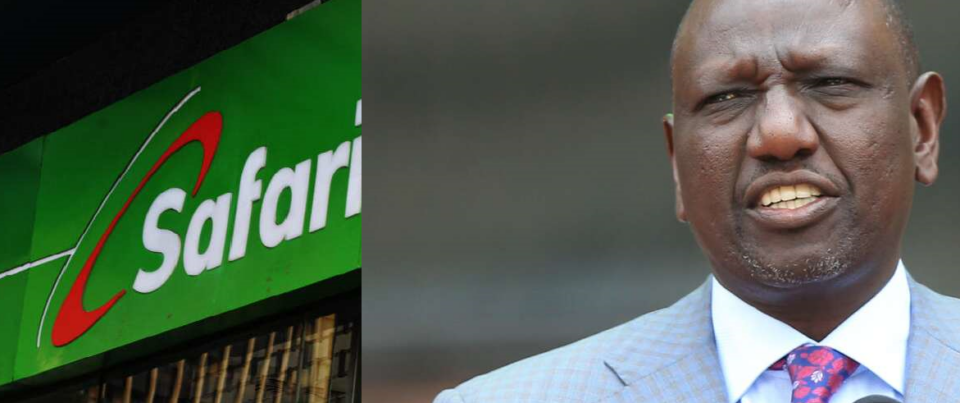Since William Ruto was sworn in as fifth president of Kenya, anxiety has been building up within big business circles owing to his pronouncements during the presidential campaigns.
The head of State and his deputy are on record as saying that top on their to-do list is breaking up the region’s largest telecommunication service provider, Safaricom, which the two termed as monopolistic and predatory to low-income earners.
They even adopted a manifesto that made sweeping promises to revamp the country’s Information and Communications sector.
“The market monopoly created noticeably by Safaricom Limited through its domination of the telecommunication and money transfer sector through the use of M-Pesa has resulted in near slavery of the hustler nation through mandatory transfer charges, high interest on M-Shwari loans and predatory lending through the Fuliza mobile loan service which places millions of Kenyans in unending debt cycles through a machine designed to keep the loan borrower under the heel of the telecommunication giant,” reads the Kenya Kwanza manifesto.
“Effective immediately after forming the government, the administration will seek the break-up of Safaricom Limited into two distinct and separate business entities with a mobile telecommunications institution under the direct jurisdiction of the Communication Authority and the financial institution firmly under the jurisdiction of the Central Bank of Kenya” states the manifesto. The justification is that the move will create clarity of purpose and regulation that is currently lacking and that has allowed the firm to eclipse its competitors.
The bid to split up Safaricom into several stand-alone business units has been a long-running conversation in the country’s ICT sector for the better part of the past decade.
In the past five years, Safaricom has survived more than five attempts by Parliament in the form of inquiries and proposed legislations that sought to break up the Sh1.1 trillion telco.
With Ruto’s win, those who have been opposed to the idea have a reason to get concerned since it is not clear which methods Kenya Kwanza plans to use to actualize their plan.
“You know, this can go either way and we really don’t know what to expect. It can be bad or good for us and the country as a whole. I would be lying to you if I said there is no anxiety within our ranks,” said a Safaricom employee who works at the company’s headquarters in Westlands, Nairobi, on condition of anonymity.
However, some analysts say it is not going to be as easy as they expected.
To begin with, Safaricom remains the National Treasury’s biggest corporate cash cow at a time the country is struggling to grow revenues. In the financial year ended March 2022, Safaricom paid Sh144 billion to the Exchequer including Sh124.7 billion in taxes and license fees and a Sh19.5 billion dividend pay out courtesy of the government’s 35 per cent stake in the firm.
“It is easier said than done. Once the duo (Ruto and Gachagua) settle down in State House, the reality will quickly dawn on them. Some of these things are not as easy as they would rather Kenyans believe,” said an economics professor who did not wish to be named
“Whoever said you campaign in poetry and govern in prose must have had Kenya Kwanza brigade in mind,” he added.
There's no story that cannot be told. We cover the stories that others don't want to be told, we bring you all the news you need. If you have tips, exposes or any story you need to be told bluntly and all queries write to us [email protected] also find us on Telegram

